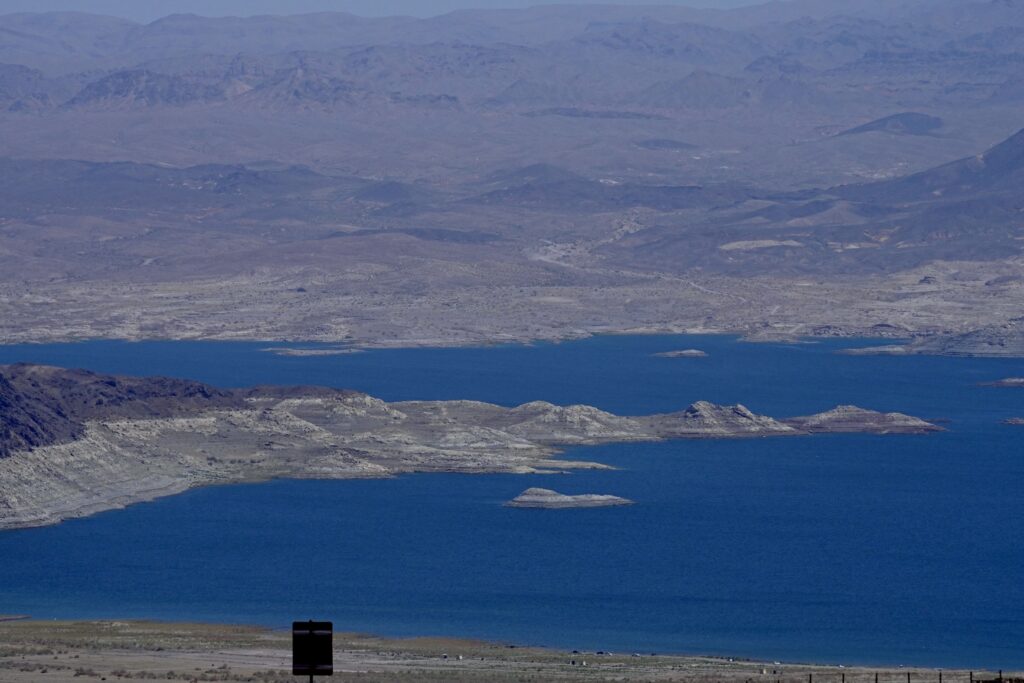Oil & gas leasing practice eliminated by Hickenlooper bill
A federal-lands leasing practice critics say allows oil and gas companies to unfairly gain control of publicly owned mineral resources was eliminated by a bill sponsored by U.S. Sen. John Hickenlooper that was included in President Joe Biden’s Inflation Reduction Act that became law Tuesday.
A quirk in federal-land leasing law allowed oil and gas companies to buy the rights to drill for only $1.50 per acre, much less than is usual, if the land had been previously put out for auction and no one bid on the parcel. A press release from Hickenlooper’s office says that 40% of acres currently leased for drilling go through this noncompetitive process.
This, says Hickenlooper, allowed companies to request the Bureau of Land Management put parcels up for auction when they had no intention of bidding on them and then, when no one else bid at the auction, the companies would lease them at the bargain price because previous law required BLM to do so.
Xcel Energy’s plans for the future of electricity approved by PUC
“The COMPETES Competitive Onshore Mineral Policy via Eliminating Taxpayer-Enabled Speculation (COMPETES) Act is a win for taxpayers, outdoor recreationists, and anyone who values public lands in the West,” said Hickenlooper. “Noncompetitive leasing encouraged speculation on lands that could be conserved for all to enjoy. We’re thrilled this common-sense bill is now law.”
“Senator Hickenlooper promised to reach across the aisle to secure bipartisan legislation, so it’s difficult to believe this legislation couldn’t have been improved with some bipartisan support,” said Colorado Oil & Gas Association President and CEO Dan Haley. “Coloradans continue to suffer with high gasoline prices, high energy costs and high inflation, and sadly this policy proposal won’t help family budgets at all.”
When public lands are leased and managed by BLM for production, says Hickenlooper’s press release, “that land is often not managed for outdoor recreation, conservation or other uses.”
Ignored for decades, Colorado River tribes fight for their water rights
According to the press release, “a 2020 Government Accountability Office report found that roughly 99% of lands leased non-competitively never produced oil or gas in paying quantities. Further, these lands generated less than 2% of federal royalties, despite accounting for nearly 40% of acres leased.”
“Public lands leased for production are typically not managed for other uses, such as recreation and conservation, but taxpayers are left on the hook for oil and gas companies’ speculation on public lands,” says the press release.
It’s unclear how speculative leases of unproductive parcels the GAO report mentions “leaves taxpayers on the hook.”
According to Hickenlooper’s office, the idea is that by cutting down the number of parcels put up for auction, the BLM will be able to redirect resources that they save to manage lands for recreation and conservation.
“It’s expected that oil companies will stop speculating as much,” said Hickenlooper press secretary Anthony Rivera-Rodriguez.
“It’s not saying that we should take out any public land for production. It’s saying you should not be able to nominate and then not even bid on it, just to take advantage of a lower price,” Rivera-Rodriguez continued.
Rivera-Rodriguez admits that BLM already has authority to manage such lands for recreation and conservation, even though the sub-surface mineral estate is under lease. But, he insists, the BLM is not doing so, pointing to the GAO report.
Recreation on leased federal lands administered by the BLM is permitted, according to Eliott Hinckley, a BLM ranger and law enforcement officer.
Polis reverses 2019 approach, fights looming expensive gasoline mandate on metro Denver
“We don’t have any regulations that are contrary to that unless there are safety issues or special recreational use permits,” Hinckley told The Denver Gazette.
According to Hinckley, surface use is permitted unless specifically prohibited.
An example Hinckley cited was grazing leases, where public access is allowed on the allotment, but grazing animals is not. Likewise, safety issues around wellheads may create the need to exclude the public. Another example is a developed ballfield operated by a town that’s built on leased federal land where the managing authority can set the rules for entry and use.











